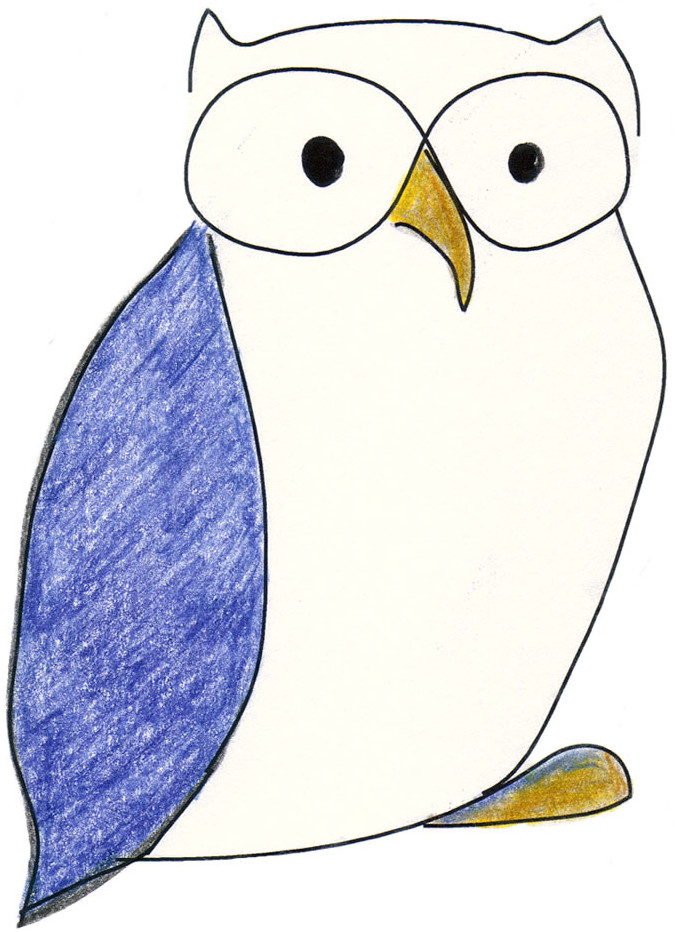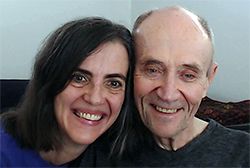Just One Look Forum
Archives
It's been 3 and a half years since I first looked and I am certain what needed to happen, happened. Something to do with my perception has definitely changed but it is hard to describe. I suppose it is just the case that I am going sane and that what is happening right now, moment to moment, appeals to me more than worrying about an uncertain future, which makes life seem more interesting. Like there is so much going on. Like I say, it's hard to describe.
What has not changed for me is the self consciousness that has been my biggest enemy for a long time. I don't understand why it is hanging on and I wonder if using focused attention exercises is the only way I can get past it. It is basically social anxiety and I always feel it when around people. I am more worried about my facial expression than of other people when I talk to them. My smile is sometimes feigned, like I have to force it. It sounds ridiculous but it has become like an obsession. I know this is big detail but i don't mind sharing and wonder if others can relate? At times when there is no anxiety I can obviously relax and enjoy company but usually it is very frustrating.
Anyway, this isn't a major deal I know, so i'm not looking for any life saving advice. Just thought I'd post something. Forums are a bit quiet these days eh...
Jim
I can totally relate to what you are saying. I have the same trouble with social anxiety. Especially when I am around people who are acting very unconsciously. And that seems to be my biggest fear, unconscious, insane people. I often have to fake a smile when I am around people. I have been forced to do this for so long that I no longer care whether it's a fake smile or not, I just want people to leave me alone. Or at least to have the right to have people leave me alone. Which I think is seriously lacking in this culture we live in, and by that I mean American culture.
I am hoping to, just like you, that the cooking process will perhaps relieve me of some of this, ideally all of this, anxiety and social awkwardness.
Yep. These social fears are persistent as hell and only seem to be completely absent when I'm intoxicated with alcohol. Maybe I am not exposing myself to these fears, soberly and often enough. I have wondered in the past how a forced social setting, like prison, could actually improve my social anxiety as I would have no choice but to talk to people. Either that or be estranged.
ps. the looking process has rid me of those panicking, run away thoughts that used to be there, I think.
I may be missing your meaning here, but "...exposing myself to these fears..." is a bad idea; declining to attend to them will starve the specific recurring pattern, and in time they will simply not arise.
Thanks John.
yes, I understand how controlling my attention is probably the only way to have the anxiety fade. But when I say expose myself to them, I mean, rather than avoid places, people, and situations, I'm best off trying to face the fear which arises. Like the book 'feel the fear and do it anyway'.
There is just a lot of discomfort in these social situations and it sometimes gets easier, sometimes more difficult. It is frustrating when I start believing anxiety won't appear and then it does.
But anyway, I am not self pitying and playing victim any more. I am trying taking responsibility.
Jim, exposing oneself soberly to the situation that causes fear is perhaps beneficial, but attending to the fear response is not. Maybe the fear goes without that even, in time? It might happen that one day fear doesn't arise in that situation.
I've been thinking about "working" on one's weaknesses and bad habits regarding the recovery, whether those should be left to take care of themselves or should an active effort be made to get rid of them? There are habits that can endanger your health in the long run, or even the short one. Perhaps an effort is needed for those if they're not going away? I've been thinking that they'll go in their own time but recently I find myself making an effort, but I'm not sure about it.
I've been watching John's retreat videos recently and it has triggered some clarity regarding thinking patterns. I've been clearer about the algorithmic nature of my habitual thoughts and how insane most of them are. Probably all of them are skewed to some extent, but some are downright laughable. This has made it easier to move my attention away from them. Our minds are funny in their contradictions; one part goes after a thing, another condemns it. Each algorithm kind of making sense in it's own context, but put all together, it's a madhouse. Seeing those mad bits of program running wild, then withering and losing power leaves an empty place. It challenges one to replace them with a new ones, but those need relearning, and it feels slow and kind of awkward. All the same, I feel progress toward clarity and sanity has been happening.
In addition to what John has replied, this can be an interesting read: http://www.fastcompany.com/3059634/your-most-productive-self/your-brain-has-a-delete-button-heres-how-to-use-it
In short: the article discusses that connections in the brain that get used less get marked by a protein. When that mark is detected by 'glial cells', they destroy the pathway. Which is actually literally what John is saying: if you decline to use these neural pathways, they will starve.
I guess not interacting with people is not a good way to starve these pathways.. you are looking for healthy interaction instead of no interaction.
Also if I understand the problem might not be in the interaction, but in the social comparison.. which still might occur in forced social settings or in isolation.
Stop the social comparison and the pattern will starve.. probably easier said than done, but i guess it's as simple as that.
NB: Of course this article might be the easily consumable mass-media version of the actual story, it might only apply to very specific regions, pathways or animals even. There is probably no proof this applies to behaviour patterns, but that doesn't make it less interesting and relevant.
Interesting read indeed Poliment, including the caveat. Thank you. Carla and I have been discussing the role of the brain in the workings of the disease and its cure lately.
We will have more to say about it when our insights become a little more clearly developed.
Nice to hear that you are trying to create a better understanding of the role of the brain. Have you (or others who are far in this process) ever had an EEG recording while doing the looking or in regular resting state? Just a small setup that targets the frontal and temporal regions could be an interesting start.
Good luck with all these efforts. I trust that one day we'll all get the whole picture.
Polle
So far as I know there have been no EEGs performed in connection with our method, but that would most likely be useful in understanding the relationship between the brain and the mind in that context of the cure and the recovery. And of course that would be beyond our reach now. Our most pressing need now is to find the resources we need to expand the reach of the method itself throughout the world. I'm confident that as the news of the looking spreads, people working in that field will come forward to play a role.
A team of two mental health clinicians and one psychiatrist in a research hospital in Toronto, Canada have written a paper about our method and had it published in an online journal of psychology and non-duality.
You can download the paper here if you haven't already:The Radical Act of Inward Looking
Things are getting better all the time. Funny, I've said this before. One thing that is becoming very obvious is how our personalities are constantly changing; from fearful, to angry, to calm, to confident, to anxious, to bored, to excited. Nothing is fixed and we need not try to be permanently happy or positive etc.
I feel much more relaxed in situations where I was completely tense before. I am on an SSRI though, which helps me a lot. I am looking forward to the summer, and to seeing friends and family. Something I shy'd away from last year, living out my days as a miserable hermit.
It's good to know that it is totally in my hands when it comes to how much suffering I endure from day to day. I am practising focused attention and I can see its reward. Even if I don't use it very skilfully and become lazy, nothing sticks around as long as it used to.
Thanks for the responses here.
Jim

